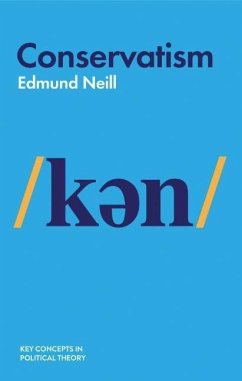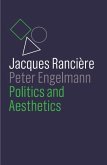Conservatism is often labelled as a 'disposition', 'tradition', or even a set of knee-jerk reactions, rather than an ideology, and its suspicion of grand theorising has lent itself to this characterization. In this book, leading political theorist Edmund Neill challenges this view.
He argues that conservatism is better identified as an ideology, albeit one that, rather than putting forward positive values like 'liberty' or 'equality', conceptualizes human conduct as being partially dependent on forces beyond human volition, and prioritizes the cautious management of change. He charts the evolution of conservative thought from the French Revolution to the present, examining how conservatives responded to disruptions to traditional order across the nineteenth and twentieth centuries. Drawing on examples from Britain, France and the United States, Neill concludes with some reflections on the challenges (and opportunities) that contemporary populism presents for conservatism.
This accomplished overview is essential reading for any student or scholar working in political theory and political philosophy, especially those with a particular interest in ideologies and conservatism.
Hinweis: Dieser Artikel kann nur an eine deutsche Lieferadresse ausgeliefert werden.
He argues that conservatism is better identified as an ideology, albeit one that, rather than putting forward positive values like 'liberty' or 'equality', conceptualizes human conduct as being partially dependent on forces beyond human volition, and prioritizes the cautious management of change. He charts the evolution of conservative thought from the French Revolution to the present, examining how conservatives responded to disruptions to traditional order across the nineteenth and twentieth centuries. Drawing on examples from Britain, France and the United States, Neill concludes with some reflections on the challenges (and opportunities) that contemporary populism presents for conservatism.
This accomplished overview is essential reading for any student or scholar working in political theory and political philosophy, especially those with a particular interest in ideologies and conservatism.
Hinweis: Dieser Artikel kann nur an eine deutsche Lieferadresse ausgeliefert werden.
'This deft and intelligent examination of conservative thought combines a strong emphasis on its comparative history with an acute understanding of its conceptual flexibility. Neill applies his highly effective analysis to the diverse contexts that reveal and illuminate conservatism's nuances and layers.'
Michael Freeden, University of Oxford
'Over the last two centuries conservatives have stood for very different things at different times. Edmund Neill does full justice to this diversity of conservatisms while convincingly demonstrating that it makes sense to analyse it as a single political tradition.'
Stuart Jones, Manchester University
Michael Freeden, University of Oxford
'Over the last two centuries conservatives have stood for very different things at different times. Edmund Neill does full justice to this diversity of conservatisms while convincingly demonstrating that it makes sense to analyse it as a single political tradition.'
Stuart Jones, Manchester University








